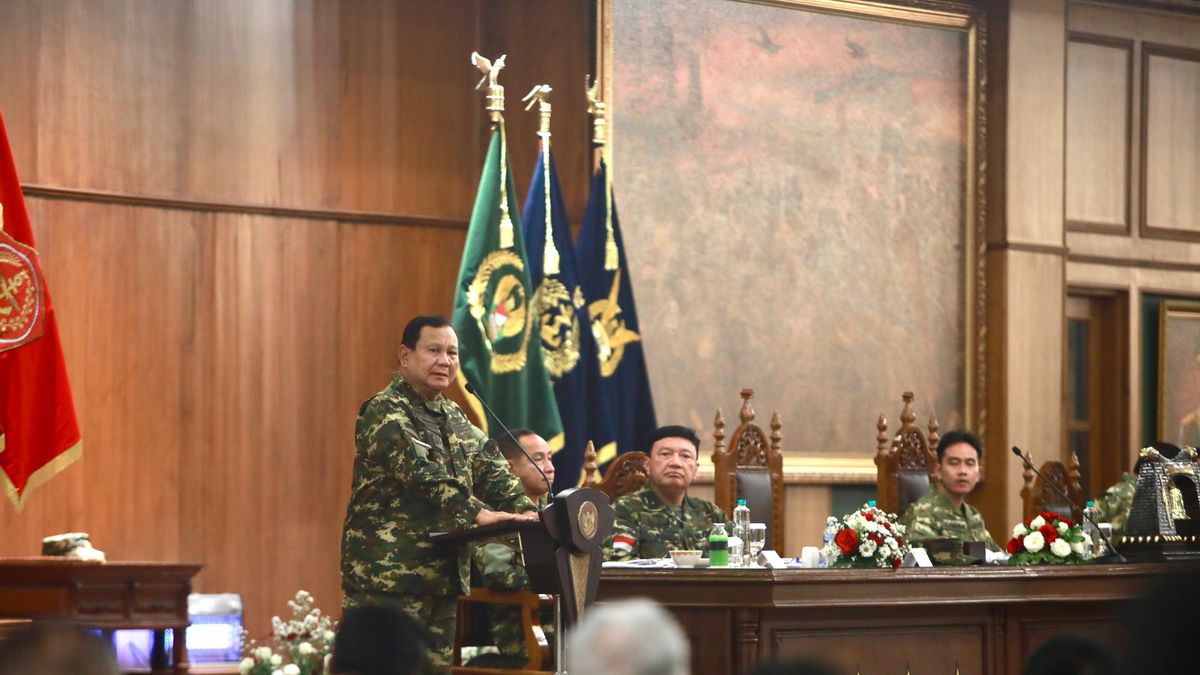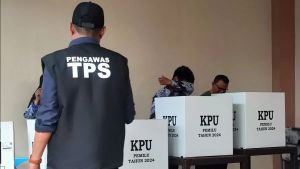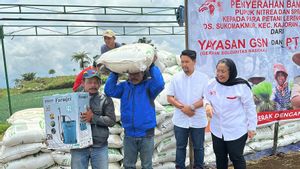JAKARTA - President Prabowo Subianto set an ambitious target to achieve zero percent poverty by 2045 and economic growth by 8% in the next five years. This target is the main guideline in national economic policy, which requires mature, measurable, and inclusive strategies.
Currently, Indonesia's economy is showing a fairly good performance with 5.05% economic growth in the second quarter of 2024 and controlled inflation at 2.12% on an annual basis (year-on-year). However, challenges remain to achieve this target.
Regarding this target, Professor of Agricultural and Agribusiness Economics at Gadjah Mada University (UGM) Masyhuri emphasized the importance of exploring new sectors to support export diversification and increase the competitiveness of national products in the global market.
"One sector that can be driven is agriculture, although according to data from the Ministry of Agriculture throughout 2019-2023 the trade balance of the sector is always a deficit," said Masyhuri in his statement.
Masyhuri assessed that the agricultural sector could play a significant role in economic growth and poverty reduction.
"We have to reconstruct the countermeasures strategy, not just providing social assistance," he added.
Furthermore, Masyhuri suggested developing an integrated agribusiness system as well as vocational education and skills training relevant to the needs of the future industry.
"The use of IoT in the agricultural school curriculum can be included so that more young people want to be involved in this sector," he said.
He also highlighted the importance of developing superior commodities in each region to increase the value of agricultural products and support sustainability through micro, small and medium enterprises (MSMEs). Synergy between the agricultural and industrial sectors, according to him, can be driven by the Keynesian stimulus in the form of incentives such as tax exemption and ease of financing.
Although Indonesia's economic growth on average only reached 5.11% between 1961-2023, Masyhuri is optimistic that an 8% growth target can still be achieved with the right stimulus policy.
"This stimulus is the government's fiscal policy to maintain purchasing power and move demand," he explained.
SEE ALSO:
He also suggested a tax holiday policy for MSMEs and new companies to encourage job opportunities to open up and reduce poverty.
In addition, Masyhuri emphasized the importance of comprehensive agricultural modernization and strong trade negotiations to increase the competitiveness of Indonesian products in the global market. "The government's role in making a 0% tariff-free trade agreement with potential export destination countries is very important," he concluded.
The English, Chinese, Japanese, Arabic, and French versions are automatically generated by the AI. So there may still be inaccuracies in translating, please always see Indonesian as our main language. (system supported by DigitalSiber.id)
















